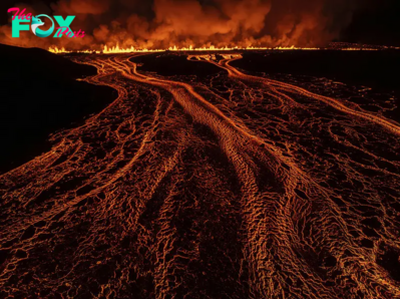World News
Yemen’s Houthi Rebels Claim Drone Strike That Kills One Person, Injures at Least 10 in Tel Aviv
TEL AVIV, Israel — Yemen's Houthi rebels claimed responsibility for a drone strike early Friday that hit part of central Tel Aviv near the U.S. Embassy, killing one person and injuring 10.
The aerial strike rumbled through the streets causing shards of shrapnel to rain down and spreading shards of glass over a large radius. The Houthis have launched drones and missiles toward Israel throughout the Israel-Hamas war, in solidarity with the Palestinian people and against Israel. But until Friday, all were intercepted by either Israel or Western allies with forces stationed in the region.
Yahya Sare'e, the Houthis' spokesperson, said in a statement published on the social media platform X that the strike was made in retaliation for the war and had hit one of many of the group's targets.
The Houthis claimed their newest drones can bypass Israel's aerial defense systems. However, an Israeli Military official on Friday that the explosive-laden drone had been identified on Thursday and attributed the hit to “human error.” The Military's assessment of aerial threats has not changed because, the Military said, Israel's adversaries have attempted such strikes for months.
“It was a terror attack that was targeted to kill civilians in Israel,” the official said of the strike, the first to threaten Tel Aviv in months.
Local police said the blast sounded at around 3:10 a.m., reverberating to nearby cities and physically injuring at least 10 people. Tel Aviv District Commander Peretz Amar said officers could not locate the point of contact, suggesting the explosion occurred in the air, however Israel's military said they had not determined whether the drone — or pieces of it — had struck buildings.
It blew out windows of a number of buildings and damaged cars in the neighborhood near the coastline. People thronged to the area as police helicopters hovered overhead.
Many of the roughly 60,000 Israelis evacuated from their homes earlier in the war have found housing in the area. For many, it reaffirmed feelings of disillusionment with how the Military has handled the war over the past nine months.
Yossi Nevi, a retired evacuee from Kiryat Shmona living in a nearby hotel in Tel Aviv said the blast shook him awake to watch the aftermath from his balcony and decreased his faith in the army's management of the war. He said many expected such a strike to come from the north, which the military said had not been the case.
Hearing it was a human error, Nevi said, made him lose “all trust in the army, not that I had much after the past nine months.”
Eldad Namdar, who owns a camera store next to the intersection where the drone exploded, said some of his items had fallen but there was no major damage. While he hopes the war ends soon, he also wants it to be concluded in a way that secures his future.
“I don’t want this to happen again in six months, I want them to finish this situation until the end,” he said.
The Houthi strike hit hours after Israel’s Military confirmed one of its airstrikes had killed a Hezbollah coMMAnder and other militants in southern Lebanon. Israel has so far not made attacks on the Houthis, allowing its allies instead to take the lead as it focuses its efforts on the war in Gaza and ongoing fighting with Lebanon’s Hezbollah militant group.
The Houthis have routinely claimed responsibility for hitting targets in the Red Sea and Gulf of Aden. They maintain that their attacks target ships linked to Israel, the United States or the United Kingdom however many have little or no connection to the war. Friday’s drone strike on Tel Aviv could resurface fears about the war in Gaza between Israel and Hamas expanding into a regionwide conflagration as international mediators continue to push for a cease-fire. The three-phase deal under discussion would halt fighting and free about 120 hostages held by the militant group in Gaza.
Such fears run counter to renewed hopes that Israel signaling its operation underway in Rafah nearing its finish could foster an environment more conducive to negotiations. The country remains divided over striking a deal, with some wanting the government to take the necessary steps to free the hostages and others, including far-right national security minister Itamar Ben-Gvir disavowing the idea. On Thursday, Ben-Gvir visited Jerusalem’s most sensitive holy site to pray for the return of Israeli hostages, he said, “without a reckless deal, without surrendering.”
Israel possesses a multilayered aerial defense system, capable of intercepting threats ranging from long-range ballistic missiles to drones and short-range missiles. These systems have intercepted thousands of projectiles throughout the war. But officials warn they are not 100% effective, and the systems appear to have struggled against small and hard-to-detect attack drones. A Military official said the system had identified the weapon but due to human error, was not set to alarm in case of attack.
Like Hamas, Hezbollah and the Houthis are backed by Israel’s arch enemy, Iran. Israel for the most part also has avoided a direct confrontation with Iran throughout the war. Iran launched hundreds of drones and missiles at Israel during a single incident in April in response to Israel’s alleged assassination of a pair of Iranian generals in Syria at the time.
The war in Gaza, which was sparked by Hamas’ Oct. 7 attack on southern Israel, has killed more than 38,600 people, according to the territory’s Health Ministry, which does not distinguish between combatants and civilians in its count. The war has created a humanitarian catastrophe in the coastal Palestinian territory, displaced most of its 2.3 million population and triggered widespread hunger.
Hamas’ October attack killed 1,200 people, mostly civilians, and militants took about 250 hostage. About 120 remain in captivity, with about a third of them believed to be dead, according to Israeli authorities.
-

 World News11h ago
World News11h agoWorld’s Best Brands – Brazil
-

 World News1d ago
World News1d agoWorld’s Best Brands – India
-

 World News1d ago
World News1d agoInternational Criminal Court Issues Arrest Warrants for Netanyahu and Hamas Commander
-

 World News2d ago
World News2d agoLandmark Bill to Ban Children From Social Media Introduced in Australia’s Parliament
-

 World News2d ago
World News2d agoAmerican and Australian Tourists Die in Laos After Drinking Tainted Alcohol
-

 World News2d ago
World News2d agoSee Photos of the Seventh Volcanic Eruption on Iceland’s Reykjanes Peninsula in 12 Months
-

 World News2d ago
World News2d agoMuhammad Yunus on the Race to Build Bangladesh 2.0
-

 World News2d ago
World News2d agoU.S. Charges Indian Billionaire Gautam Adani With Defrauding Investors

















